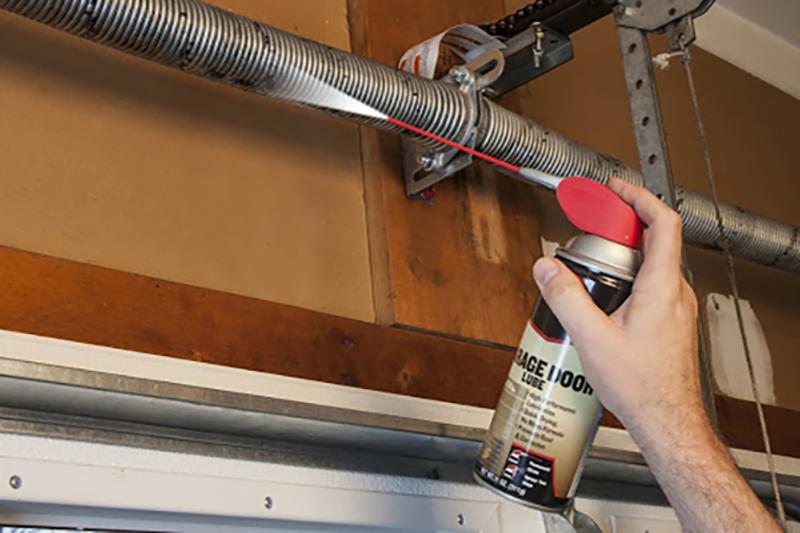What Parts Of A Garage Door Need To Be Lubricated? Your garage door is one of the most hardworking components of your home, constantly opening and closing, providing security, and convenience. To ensure it continues to operate smoothly and efficiently, proper maintenance is essential. One crucial aspect of garage door maintenance is lubrication. In this article, we’ll explore the key parts of a garage door that need to be lubricated to keep it in top shape.

Why Lubrication Matters
Lubrication is critical for the longevity and smooth operation of your garage door. It serves several essential purposes:
- Reducing Friction: Lubrication minimizes the friction between moving parts, preventing premature wear and tear.
- Preventing Rust: It creates a protective barrier against moisture, helping to prevent rust and corrosion on metal components.
- Minimizing Noise: A well-lubricated garage door operates quietly, reducing the noise that can disturb you and your neighbors.
- Enhancing Performance: Lubrication ensures that your garage door operates at its best, making opening and closing effortless.
Parts that Require Lubrication
Now, let’s dive into the key components of your garage door that need regular lubrication:
1. Rollers
Rollers are one of the primary components that require lubrication. They are responsible for guiding the door along the tracks as it opens and closes. To lubricate them:
- Use a silicone-based spray lubricant, applying it generously to each roller.
- Roll the door up and down a few times to ensure the lubricant is evenly distributed.
2. Hinges
Hinges play a crucial role in the movement of your garage door, allowing it to bend and follow the curved path of the tracks. Lubricate them as follows:
- Apply lubricant to all pivot points on the hinges.
- Move the door to distribute the lubricant evenly.
3. Springs
Garage doors typically have two types of springs: extension springs and torsion springs. While extension springs may not require lubrication, torsion springs benefit from it:
- Apply a light coat of lubricant to the coils of the torsion spring.
- Manually open and close the door a few times to work the lubricant into the spring.
4. Tracks
The tracks are critical to the smooth operation of your garage door. Lubricating them is essential:
- Apply lubricant to a cloth and wipe it along the entire length of the track.
- Ensure that you remove any debris or obstructions that may have accumulated on the track.
5. Locks and Handles
If your garage door has locks or handles, these should also be lubricated:
- Apply lubricant to the keyhole and any moving parts of the lock and handle.
- Operate the lock and handle to ensure the lubricant spreads inside.
6. Weatherstripping
While not a moving part, weatherstripping helps seal your garage and keeps out drafts and pests. Maintain it with a silicone-based lubricant:
- Apply a small amount of lubricant to a cloth and wipe it along the weatherstripping to keep it pliable and effective.
How Often Should You Lubricate?
The frequency of lubrication depends on several factors, including climate and usage. As a general guideline, it’s a good practice to lubricate your garage door every six months. However, if you live in an area with extreme temperatures or your door is heavily used, you may need to lubricate more frequently.
Read too: How To Lift A Garage Door With A Broken Spring
Conclusion
Proper lubrication is a simple yet vital aspect of garage door maintenance. By lubricating the essential parts of your garage door regularly, you can ensure that it operates smoothly, quietly, and efficiently, extending its lifespan and avoiding costly repairs. Regular maintenance, including lubrication, is a small investment that pays off in the long run by keeping your garage door in optimal condition.



Leave a Reply